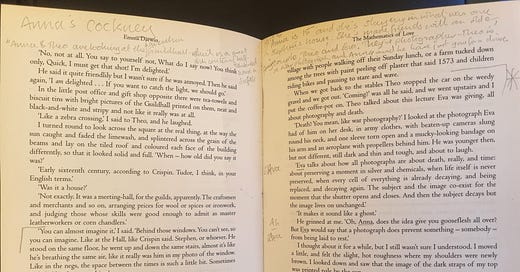Top Tips for Giving a Reading
Make the most of all our new routes to readers who are listeners
Happy Five Gold Rings Day, or not-Christmas-any-more-but-not-New-Year’s-Eve-either day, or whatever today is. (Friday? I think?) In the cracks, many of us may be thinking about our writing lives: where we came from, how it’s going, what what we want to give it, and what we want from it. And one thing that’s developed enormously in the last few digital years is our routes to readers who are actually listeners.
No longer are we limited to the bookshop reading and the festival platform: there’s the Zoom reading (often combined with a launch), the social media clip which has reached its apogee (to date) as the TikTok/BookTok post, the increasing audio possibilities here on Substack, the podcast, and even the full-scale audiobook of your novel or memoir, as organised via your publisher or self-published by you. I haven’t personally done all of these, though never say never. But I’ve done a good many, even if not well, and as a half-trained actor I’m always curious about how it all works.
PREPARATION
Pick sections which read well and have some dynamism: one where things have changed in some way by the end. Leave out accents you can’t do or would feel uncomfortable reading aloud. Before my first reading, my agent said, ‘The beginning is a good place to start’, and she was right because you wrote it assuming the reader knows nothing. But it’s not the only possibility.
Don’t be afraid to edit extracts to shape them as standalones: consider cutting a character who is unimportant in the scene so you don’t have to explain them, or a line/s which make sense in the larger context but here just sounds extraneous. Reading aloud is a vital editing tool, but occasionally a sentence reads perfectly on the page but somehow doesn’t work aloud: don’t be afraid edit it.
Having said that, don’t feel every phrase must be self-explanatory: listeners know this is only a clip, and are not bothered by not knowing the detail of where we’ve come from, or passing elements whose signficance, if any, isn’t obvious. Trust me, readers need far less explaining than you think.
Keep reading with a 7-day free trial
Subscribe to This Itch of Writing with Emma Darwin to keep reading this post and get 7 days of free access to the full post archives.




